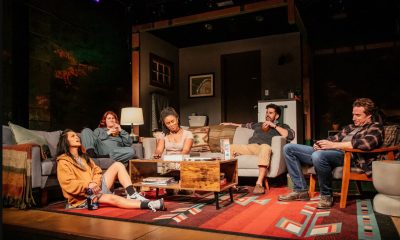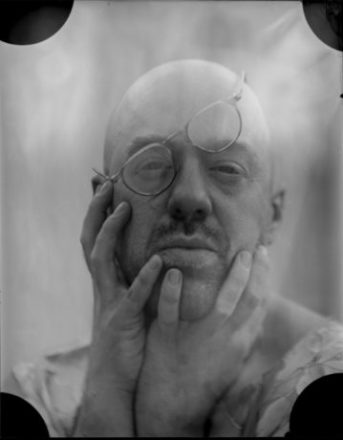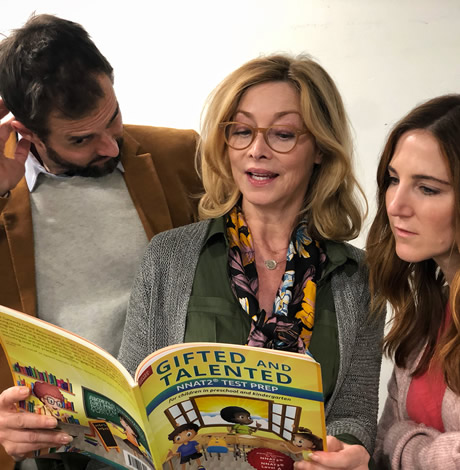Theater
Underage gender identity is a family matter in “A Kid Like Jake”
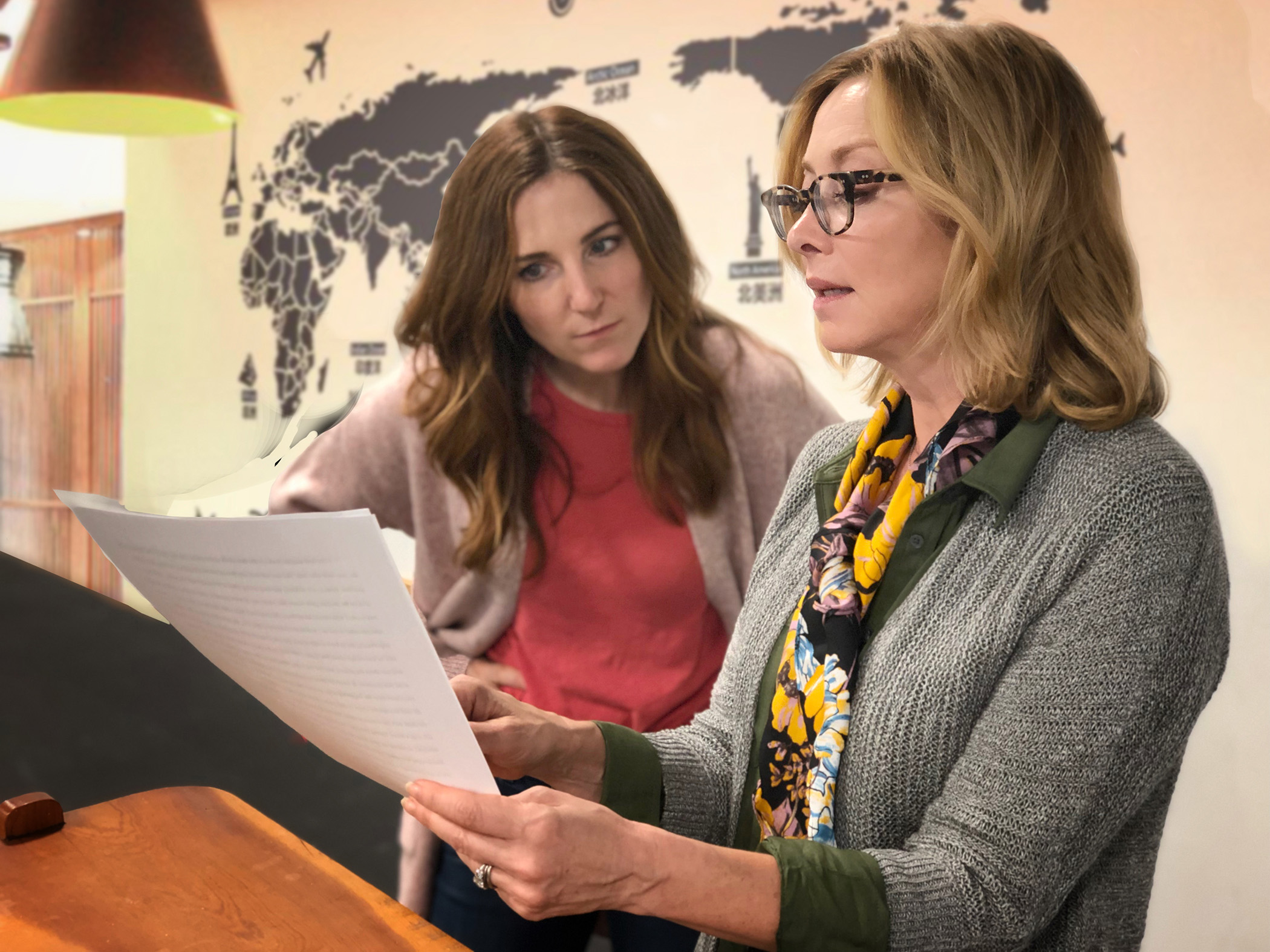
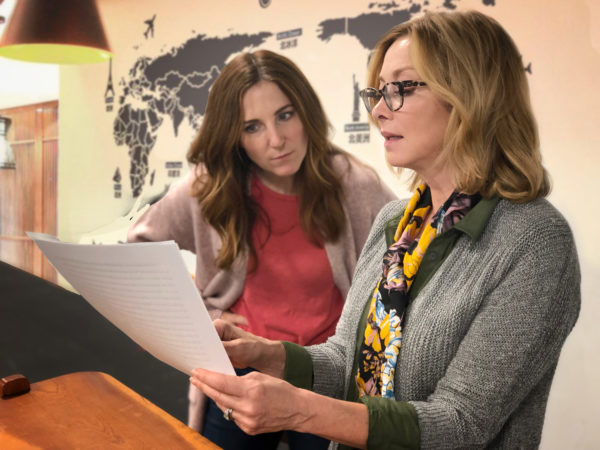
When Daniel Pearle’s “A Kid Like Jake” was first performed in 2013, the world was a very different place.
Early in the second term of the Obama administration, the play – about two young Brooklyn parents grappling with the possibility that their 4-year-old son’s fondness for playing dress-up might be an early attempt at alternative gender expression – was met by a progressive and open-minded cultural climate that was ready and willing to welcome it into the growing public conversation about gender identity.
Nevertheless, six years after its initial debut, as Pearle’s re-tooled version is poised to make its West Coast premiere in an IAMA Theatre Company guest production at the Pasadena Playhouse, it’s no longer safe to assume the show will be welcomed with open arms.
That’s not because understanding about gender dysphoria has evolved, although it certainly has; the playwright himself has commented that when he first wrote the script, “it was before ‘Transparent,’ before Caitlyn Jenner and Laverne Cox, before ‘gender expansiveness’ was part of our cultural lexicon.” The changing landscape around the subject, however, was always part of the dynamic that made the play tick, and the rewrites undertaken by Pearle after his work on the film version (which debuted at Sundance in 2018 and went on to a limited theatrical run) presumably bring the conversation up to date for a new production.
What makes its reception an uncertain proposition is the shift that in the culture since 2016, the regressive backlash from conservatives that has reminded us that the struggle for LGBTQ acceptance – especially with regard to trans and other gender non-conforming individuals – is a long way from being over.
Discussion about the issue becomes particularly virulent when it relates, as it does in Pearle’s play, to someone who is underage.
Consider, for example, the case of Desmond Napoles, better known as “Desmond Is Amazing,” the now-11-year-old drag performer who has been in the public eye since an appearance at 6 in a Jinkx Monsoon music video. Identifying as gay and genderfluid, Desmond has gone beyond the fame of his popular Instagram presence and his public performances to become a widely recognized advocate and spokesperson for LGBTQ issues. Yet he has also been met with criticism from social conservatives, who claim that his supportive parents are “sexualizing and exploiting” a minor. Social media is rife with other such cases, where online bullying and even death threats are a daily occurrence, arising from the kind of outdated thinking that conflates gender identity with sexuality, and being queer with pedophilia.
With that kind of heated tempest as part of the social backdrop, it’s easy to imagine that “A Kid Like Jake,” might be returning into a political firestorm of its own. Yet according to director Jennifer Chambers, speaking to the Blade in advance of the show’s October 3 opening, it’s a play that slips past the political to focus on the personal.
“The play is about Jake, but it’s also not,” she explains. “We never see Jake, at all. He’s talked about, but he never appears onstage as an actual character. It’s about his parents, and how they work out where they are with their son.”
She elaborates. “They are considering getting him into special programs for kindergarten, and as they’re going through the school application process, things start being revealed about who he is, or who he might be. It becomes a discovery about gender identity, and how as parents… when you think things are one way, and your child is finding their own self and their own voice… how as parents, you navigate that. And then when that hits upon your old belief systems, your old ways of thinking, how that affects your relationship with your son, and your marriage, and how you navigate through that.”
Reflecting on how the play handles the situation, Chambers adds, “I think these parents really begin from a place of ‘we’re doing absolutely the best things for our son, we know what’s best for our kid and we’re making exactly the right decisions for him’ – and then as things progress, as things get to revealed, that gets called into question. There are the older blind spots, and biases – fears, really – about who your kid is, or might be, and about how because of it he… or she or they… is not safe. You want to protect your kid, but you also need to allow my kid to be who they are. It’s really all about the parents’ journey, and how they open up and fall apart and get put back together inside of that conversation.”
As for many of the hot button-issues surrounding young people who grapple with their gender identity – the prejudice, the bullying, the sexualization – the director says the play doesn’t really go there. “We do touch on a few of those boundaries, of where, inside of our biases, we might go; Alex, the mom, out of her own fear, out of her sense of feeling the ground being pulled out from under her feet – there’s a time when she says things that, if she were thinking and were not fueled by that fear, she would absolutely never say. It touches into that – but otherwise no, it’s very much contained inside the family, and inside of the process of just applying to kindergarten.”
By keeping the focus squarely on the people directly involved in the process of discovery depicted in the play, “Jake” keeps the situation free from the complications imposed by a larger world, allowing its characters to explore the limits of their own boundaries – a process that is complicated enough on its own. It’s this breaking down of what has become a public issue into the private, the setting of the conflict in an intimate arena instead of a social one, that made Chambers – who is herself the mother of two children, seven and nine – want to jump at the chance to direct this new production.
“More than anything I really love Daniel’s writing,” she says, “I love his rhythms, I love his humor. But also, I’m a parent, myself, and my kids are growing. It’s a process – how you support your kids, when they’re your babies and they’re so much a part of who you are, and then they grow and they differentiate. It’s brutal, and it’s beautiful, and it’s heartbreaking – and I don’t think there’s an easy way to navigate it, as they become their own self. The essence of that is what hooked me into this and what keeps pushing me. It’s so simple and so complicated at the same time, which is what is so exciting to me.”
Given the involvement of a director with such a deeply-felt personal connection to the material, working with a talented cast that includes Sharon Lawrence, Olivia Liang, Tim Peper, Sarah Utterback, “A Kid Like Jake,” is likely to carry much of that excitement to L.A. audiences as it continues its Pasadena Playhouse run through November 3.
For performance schedule and tickets, visit iamatheatre.com.
Arts & Entertainment
Pivotal years and growing pains take center stage in David Bean Bottrell’s new show
David Dean Bottrell on puberty, panic attacks, and his painfully pivitol years growing up in a teenage wasteland

David Dean Bottrell is no stranger to shape-shifting — whether he’s embodying eccentric characters on screen or pouring himself into authentically intimate self-portrayal on the stage. With a career encompassing television, film, writing and teaching: does he ever sleep?
Bottrell has carved out his own space where vulnerability and comedy intersect. His most recent project, “Teenage Wasteland: Thirteen, Fourteen, Fifteen,” is currently touring the country and will soon land in Los Angeles, inviting folks into the honest, funny and often cringey reality of adolescence.
In this interview, Bottrell opens up about the awkward photo that sparked the show, the shock and joy of his first standing ovation and the significance of queer storytelling in today’s cultural climate. Bottrell brings both heart and humor to every story he tells. Whether you grew up a theater girlie, an outcast, or just someone who grew up feeling like they never had the right answers, “Teenage Wasteland” is sure to feel like a long overdue conversation with younger you.
Your new show is currently touring the country and is soon to hit Los Angeles. What was the spark that inspired the creation of “Teenage Wasteland?” Was there a particular memory, milestone, or meltdown that motivated you?
I was looking through some old photos and found this truly hideous picture of myself when I was thirteen. I’m not kidding. It was mortifying. I remembered the day it was taken. I remembered the shirt I was wearing, so I instantly knew I wanted to write not just about adolescence, but early adolescence — when you go from being a cute child to this ugly little rodent with bad skin who suddenly needs to wear deodorant.
It’s such a tough time, probably one of the hardest chapters of life. So much is happening and it doesn’t feel safe to even ask the most basic questions. You usually just have to take your best guess and sometimes you guess horribly wrong.
“Teenage Wasteland,” is subtitled “Thirteen, Fourteen, Fifteen.” What did those three years mean to you? Any stories from that time in your life you’d like to share with the class?
Absolutely! As anybody who’s seen shows can attest, I’m nothing if not a “sharer.” Something I often say at the top of the show is: ‘if you had a happy early adolescence, you should probably just leave now. This show isn’t for you. It’s for the rest of us.’ When I think about that time, the word “survival” comes to mind. The stories are mostly about all the big scary discoveries that keep coming at you.
The show opens with me talking about my first orgasm — which was totally spontaneous and terrifying — and happened in a very awkward and bizarre location. My family was super religious and very uptight about sex, so I’d been told nothing. Not a word about what was happening to my body. I almost asked to be taken to the hospital. Oh, and that hideous picture I found — It’s now on the poster for this show.
You’ve performed your shows on both the east and the west coasts. What’s the biggest difference between an east coast audience and a west coast audience? Do you have a preference? I can keep a secret…
Christ, I hope not. I’m counting on you to blab this to everybody. Surprisingly, the differences are pretty subtle. My shows aren’t stand-up. They’re each a collection of these weird funny stories that all weave into each other. I sometimes describe them as sort of like National Public Radio (NPR), but with a lot more swearing. L.A. audiences like to ride the rollercoaster.
The nuttier the story, the more they love it. New Yorkers love to see how far down the elevator shaft I’ll go. They seem impressed when I download some really uncomfortable shit and still manage to make it funny. I’ve spent my adult life bouncing back and forth between the coasts and I honestly love both groups of people equally — and that’s not me dodging the question.
That’s actually true.
You’ve shared the screen with folks like James Spader, Angela Bassett and Dolly Parton. Tell us, who would’ve been your high school bestie and who would have been your arch frenemy?
Oh man, Dolly would have been my best buddy for sure. She’s a Tennessee gal and I’m from Kentucky, so there’s a strong chance that we’re distantly related. I’ve seen great pictures of her in high school. I’d have happily stolen a can of my mom’s White Rain hairspray and helped Dolly put a few extra stories on those skyscraper beehives she used to wear. I’d have been way too scared of Angela. When I worked with her she was fresh out of Yale, but she already seemed like royalty. I don’t mean she was snooty. Quite the opposite! She was lovely, but she had this beautiful confidence even back then — something I did not have in my high school days. So, I imagine James would’ve been the frenemy. He’s such a brilliant guy and very kind. But he plays his cards close to his chest and he can be a little hard to read. I would never want to compete with him for anything like Prom King. I’m pretty sure he’d have devised some brilliant way to wipe the floor with me.
You wrote the screenplay for Kingdom Come, you’ve directed, you teach and you wrote a book. What haven’t you done yet? Any frontiers you’re looking to cross next?
Other than two years of acting class, I have almost no education, and I bluffed my way into most of those jobs. Primarily because I needed the money. Lately, I’ve been thinking that I might try pole dancing next. I hear the tips are fantastic.
From lawyers to killers and even a blood-thirsty vamp on HBO’s “True Blood,” you have portrayed quite the array of characters throughout your career. In “Teenage Wasteland” you will be sharing part of your own story. What made now the right moment to embrace vulnerability and go autobiographical?
Prior to doing these shows not many people knew my backstory. I tended to hide it. The first time I performed “David Dean Bottrell Makes Love: A One-Man Show” at the Comedy Central Stage in L.A., I had a panic attack ten minutes before the show. I suddenly thought, ‘what the fuck are you doing? You can’t say this stuff?’
But it was too late and the place didn’t have a back door. I was really sweating when I walked out on that stage, but as soon as I said the first line, they started laughing and for the next hour they didn’t stop. I love acting because — at its best, I get to disappear into some odd character that was written by someone else. It’s wonderfully safe in there. But in storytelling, the goal is the opposite. You certainly want people to be entertained; you want to make them laugh, but if you’re not transparent — if you’re not willing to tell a little more truth than you probably should be telling — you won’t be able to hold them. They didn’t come to this show to listen to you say something ‘easy’ and there is nothing funnier than the truth.
You also appeared on “Modern Family,” a show that not only helped normalize queer families for a mainstream audience but also portrayed them with humor and heart. What are some messages that you think the show got right that many politicians today still do not grasp?
I was honored to have been on “Modern Family.” The thing about being queer in a primarily straight world is you have to come out like once a week — to the new person at work. To the dry cleaner. To the doctor. Your new neighbor. It feels endless. Sometimes you feel like you have be a perfect gay Barbie and educate everyone that, for the most part — life is life. We all want respect. We all want a family of some kind. We all want to understand how our iPhones work.
Shows like “Modern Family” just presented these wonderful queer characters with real jobs, real kids, real families and I think it made a big impact. It demystified our existence.
Unfortunately, politicians since the beginning of time, win by creating fear and that sometimes means appealing to the most basic gross instinct of humanity that the ‘others’ are not to be trusted and that they’re up to no good.
You grew up in Kentucky before Ellen was out and RuPaul had a budget. When you look at today’s state of queer storytelling, what makes you hopeful? What still feels hollow to you?
There’s been an incredible, big happy tsunami of change since I was a kid. I remember how important the queer film festivals used to be because we got to come together and see our lives depicted honestly on screen. Now our lives are on streaming services. When I saw “Fellow Travelers” which, granted, was a period piece — some of it was so raw, I felt I should get up and close the curtains. It was thrilling.
I’m really optimistic about what’s possible now, especially with all the super-popular queer stars who can hopefully continue to keep pushing us forward. I feel bad saying this, but I didn’t love “Mid-Century Modern” because (despite being unapologetically gay, which I liked) it still felt a little like “The Golden Girls” in drag. It seemed like the show could’ve been less jokey and maybe taken a fresher look at a group of men walking nervously into a new, possibly less sexual chapter of their lives.
Let’s say a teenage version of yourself sneaks into your show. How do you think they would walk out feeling? What do you hope they walk out feeling?
Wow. Good question. Well, I hope they’d walk out the door excited about their life and a little proud of themself. I never thought of myself as being particularly brave when I was kid. But writing this show made me realize I was much stronger than I thought. I came from a family that wasn’t exactly what you’d call ‘lucky,’ but somehow I instinctively knew how to take my lemons and make lemonade. I had a lot of cousins — and some peers — who took their lemons and planted a lemon grove.
What is something the audience might not expect from “Teenage Wasteland?” Is there a moment that reverberates to your core when you perform it live?
Yes! There are several of them. I think the biggest thing that rings true in the stories is that growing up different; being on the edge of things, can sometimes make you feel lonely or angry or scared. But it also teaches you how to navigate, how to walk yourself home, how to laugh really hard, how to earn love. Most importantly, how to forgive everybody including yourself.
Events
Right Before I Go: Danny Pintauro on mental health, survival and speaking up
As Mental Health Action Day approaches, Pintauro’s message is simple but vital: start the conversation

Actor and advocate Danny Pintauro is not one to shy away from a difficult conversation and with his latest project, he’s diving right into one.
Starring in the benefit reading of Right Before I Go for Mental Health Action Day, Pintauro isn’t just lending his voice to a powerful script — he’s putting his own lived experience on the front lines of a conversation that, quite honestly, needs to happen. With a cast full of talent, a story grounded in authenticity and truth, and a discussion that promises real dialogue, this is not just a night at the theater but a call to action.
We were fortunate to have the opportunity to connect with Pintauro and talk about what drew him to this project, how his own journey informs his advocacy, and why we all need to ‘kiki less, talk more.”
Spoiler alert: things get honest, unfiltered, and refreshingly hopeful.
You’re starring in the benefit reading of Right Before I Go for Mental Health Action Day. What drew you to this particular project?
Stan Zimmerman, the creator of this piece, sent the script to me quite a while ago and I was intrigued after reading. So we’ve been waiting for an opportunity to work on this together. The timing is perfect with May 15 being Mental Health Action Day. The Curtis Theater in Brea is also very hands on with this piece and is providing a mental health professional for the talk back after the show. To work with Mindy Sterling, Juliana Joel, Philip Smithey and Kalinda Gray — is a dream.
The play is built around the true story of Stan processing the loss of his friend Kevin from suicide and how that journey of understanding led him to read numerous notes that various people, both famous and not, have left behind. While telling his story, the other four actors, including myself, read the various letters that impacted Stan the most. This play is an opportunity to get people thinking about suicide and mental health, and any opportunity to affect even a small group of people in this way is important. Safe spaces are important and we’re going to provide one on May 18.
As someone who’s been open about your own health journey, how does this play resonate with your personal experiences?
Look, we’ve all had a moment in our lives where things were so bad, ending your life seemed like the only way forward. If someone tells you they have never had that moment they’re lying. That moment when you are convinced the only solution in front of you that makes sense is to not be alive anymore. I have had multiple instances in my life where it was right there, right on the tip of my tongue. Whether it be in my early 20s when I was outed by the Enquirer, my late 20s when I found out I was HIV positive, or my early 30s when I filed for bankruptcy and felt completely lost.
We’ve all been there, we just — we have to start talking about being there, share the journey with others- that’s the fastest way for us to make change.
According to the CDC, nearly 49,000 people died by suicide in 2023 — that’s one every 11 minutes in the U.S., with the numbers being disproportionately higher for minority groups. The Trevor Project reports that 18% of LGBTQ youth attempted suicide that year, with trans individuals being 72% more likely to do so.
What if removing stigma created safe spaces — starting with ourselves — that allowed people to talk before it’s too late? Just opening up in our friend groups could make a world of difference, especially for young LGBTQ people who might feel seen and supported for the first time.
Depression is a major driver of suicide, but anxiety plays a huge role too. Think about it —suicide can feel like a form of relief when fear and panic become unbearable. My husband, for example, has severe anxiety and claustrophobia on airplanes. When stuck on a tarmac too long, his panic gets so intense that his brain starts convincing him the only escape is to end his life. He’s logical, emotionally stable, and still this happens. That’s how powerful anxiety can be—and why we have to talk about it more. Kiki less, talk more.
In the past, you have always been open and honest about the challenges of living with HIV and overcoming addiction. How have these experiences impacted your approach to mental health advocacy?
As I mentioned, finding out I was HIV positive in 2003 was rough. At the time, we barely understood what the future looked like for people on medication and the drugs themselves were still harsh on the body. There weren’t many examples of people living full, happy lives with HIV — it felt like a death sentence. On top of that, I also contracted Hep C, which can accelerate HIV progression. I truly believed my time was limited. Thankfully, my Hep C resolved itself, but that initial realization — that I’d need to take a pill every day or die — sent me into a tailspin that brought me inches from suicide.
Addiction and mental health[care] are just as tightly connected. One rarely exists without the other and both carry heavy stigma. Talking about either can change how people see you, which is why it’s critical we create a culture of understanding and compassion. We’ve come a long way, but in 2025, it’s still shocking how much judgment exists around suicide, addiction and even depression.
We have to do better.
Right Before I Go digs deep into heavy themes of suicide and mental health. What message do you hope audiences take away from this performance?
You’ll find the keyword of this interview will be action and how we must all take action when it comes to mental health. For our own sakes and for those around us. We must all reach a place where speaking openly and honestly about our personal struggles is easy and we feel heard. That requires education, for both the person suffering and those around them.
So, this play will hopefully give people who are struggling, a safe space to speak about it [during the talkback portion after the play]. [This part] will also get the audience members thinking about who in their lives might be struggling and maybe help them understand why they are struggling in the first place, or even help them understands what the signs are. So few people talk openly about suicide, we are left to read the signs.
Lastly, yes, the play is specifically about suicide, but suicide is a byproduct of mental health and we need to remember that mental health is intrinsically tied to overall health. Everyone can agree that poor mental health leads to poor physical health, both in the short term and long term. I experience this on a daily basis — my anxiety can get so severe that my doctors are worried I will develop ulcers. And if you believe in energy, having your body flooded with the negative energy your mind is creating throughout the day is sure to affect your health. So we all need to take action to make sure our brains are cooperating as fully as possible. What does ‘action’ look like for you? Therapy? Medication? Both?
You’ve been a vocal advocate for de-stigmatizing HIV. How do you see the parallels between the stigma surrounding HIV and that of mental health issues?
They used to be inseparable. Thankfully we have come so far with HIV treatments that we can finally separate the two – through research and through meeting others living happily with HIV you can reach a place where any misgivings, worries or fears can be put away in a box and burned. Every time I encounter someone on my live streams or in my messages who is in a dire state about their HIV diagnosis, it becomes clear right away that they haven’t done their research and are simply living in the stigma.
To be clear, I’m not judging them for not having done their research. I’m simply acknowledging that the act of finding out your positive is so overwhelming and intrinsically tied to shame and fear, you don’t know what to do. Ten years ago, I was always hopeful and positive when responding to people who had just found out. Now I can tell someone with confidence that they can and will live a happy healthy life, even with HIV. The fear dissipates quickly once they realize that taking their medication, as prescribed, will allow them to live long lives — I mean, I’m 20 years positive and in the best health of my life. Learning that (U=U) is real and viable and that taking PrEP can prevent transmission and can remove the shame surrounding being sexually active again. Meeting others who are living full lives should clear any remaining stigma.
That’s when you ‘pop out and into’ your new world with a new passion for life. That’s my personal mantra for a lot of things, when I find myself worrying about my acting career for instance — I try to ‘pop out’ of the negative mindset and ‘pop into’ my manifestations or the very least, ‘pop into the present moment.’
What role do you believe the entertainment industry plays in shaping public perceptions of mental health?
As I’ve always believed, the entertainment business creates opportunities to change public perception every day. I said 100 times already that one of the ways to end stigma and bring mental health issues more to the forefront is through education. But not everyone is going to pick up a pamphlet and decide to become more educated about suicide or depression — at least not until they’re faced with it personally.
But those same people are watching more and more film, TV and social media and if we present them with honest, real and relatable examples of people with suicidal tendencies, depression, mental health issues, etc… while also presenting them with examples of how to help those people — bam, they’ve become educated.
I’ve been saying this since 1997 about the LGBTQ community — one of my jobs in coming out was [and] is to be an honest, real and relatable example of someone who is gay. The more examples, the more acceptance, education and understanding.
Right now, one of the things we are not seeing much of at all in film and TV are people living happily with HIV and having sex. We need to start seeing more examples of this [because] it will help everyone understand and learn. It will make it easier for people just finding out to move through the stigma, it will show how far we’ve come and it will educate people.
I constantly have people ask me how I’m ‘doing.’ And it’s always clear they actually mean, ‘I know you’re dying from HIV, how long do you have?’ If we can start showing people that we are doctors, nurses, teachers, politicians, parents and friends, we can get them to believe we’re not all dying. The only difference between you and me is that I have to take a pill every day, hell, some people get a shot every three months now, that is truly the only difference in our daily lives.
Given your diverse career, from acting to animal rescue, how do you balance your personal passions with your advocacy work?
You know, I wish I could say I was more of an advocate. I wish I was more like Alyssa Milano or Wilson Cruz, just every day taking on the challenges of being vocal about multiple causes. Compared to them, it really feels like I’m not doing anything, It’s also hard to be as prevalent as they are when your daily life is filled with so much uncertainty.
Since coming back to the entertainment business in 2022, I have had minimal success due to everything that’s affected the business since then. I know success is just around the corner for me. I can feel it — but right now we worry about paying our bills, not so much about being an advocate. I think just existing in this world as an example of a healthy, happy HIV [positive] gay man with addiction issues, is going to have to be enough for now.
For people struggling with mental health challenges, what advice would you offer based on your own journey?
My journey is unique, and while I’m not a mental health professional, I always encourage anyone struggling to seek real help because it’s easier than ever to find. What I can share is what’s worked for me.
I talk about this a lot during my TikTok lives: you’ve got to live in the present. That’s one of the main reasons I’ve survived everything I’ve been through. I’m great at letting go of the past, but my anxiety keeps me living too far in the future. Staying grounded in the moment takes work — deep breaths, mindfulness, and yes, therapy.
When I feel myself spiraling, I remind myself: in five years, I don’t want to look back and regret wasting time stuck in a mental health hole. While it’s not always easy to spot when you’re slipping, the key is awareness — what I call my mantra: ‘pop out and pop into.‘ Be conscious enough to pop out of destructive thoughts and pop into the present. Grieve, process, heal — but then live.
Because you’re the only one you truly need to live for.
If you’re stuck in the past or paralyzed by the future, find a therapist. If your mental health isn’t where you want it to be, talk to a doctor about medication. And yes — that stigma still exists. Why is it so taboo to say [to yourself], ‘my brain needs help and I’m choosing medication so I can fully live?’
Our brains aren’t perfect — some need support. That’s not weakness, it’s wisdom.
To my trans brothers and sisters: I see you. I hear you.
According to The Trevor Project, suicide attempts among trans and nonbinary youth rose by 72% in the wake of anti-trans legislation. I know what it’s like to not feel safe — I came out at a time when being openly gay was a radical act. We’ve made huge strides, but our trans friends don’t always have the same safety. We must protect them.
We lost a trans friend in Austin this year. It hurts and I can’t help but think — if the political climate were different, maybe they’d still be here. But we will get through this. When I came out, we barely had two gay characters on TV. Now queer people are everywhere on screen — and that visibility saves lives. So stay visible. Stay here. It does get better.
Looking ahead, how do you envision continuing to contribute to mental health awareness and support?
Hopefully by continuing to read this play in other places around the country. But it will not be hard for me to always be vocal about mental health considering I suffer from it. That’s really the key, people need to talk more openly and freely about their mental health issues — to breakdown stereotypes, to help others see they are not alone, to learn more about yourself — all of it.
What do you hope people remember about your involvement in Right Before I Go and your advocacy efforts?
I hope that people remember the collective moment we get to have after the show in our talk back – that’s where the real work begins!
Right Before I Go: Curtis Theatre, Sun, May 18th, 2025 at 5:00 pm: Tickets Here
Arts & Entertainment
‘A Man of No Importance’ musical revives as censorship grips America
A Noise Within Theatre’s revival of the Terrance McNally Musical opens Friday, May 9
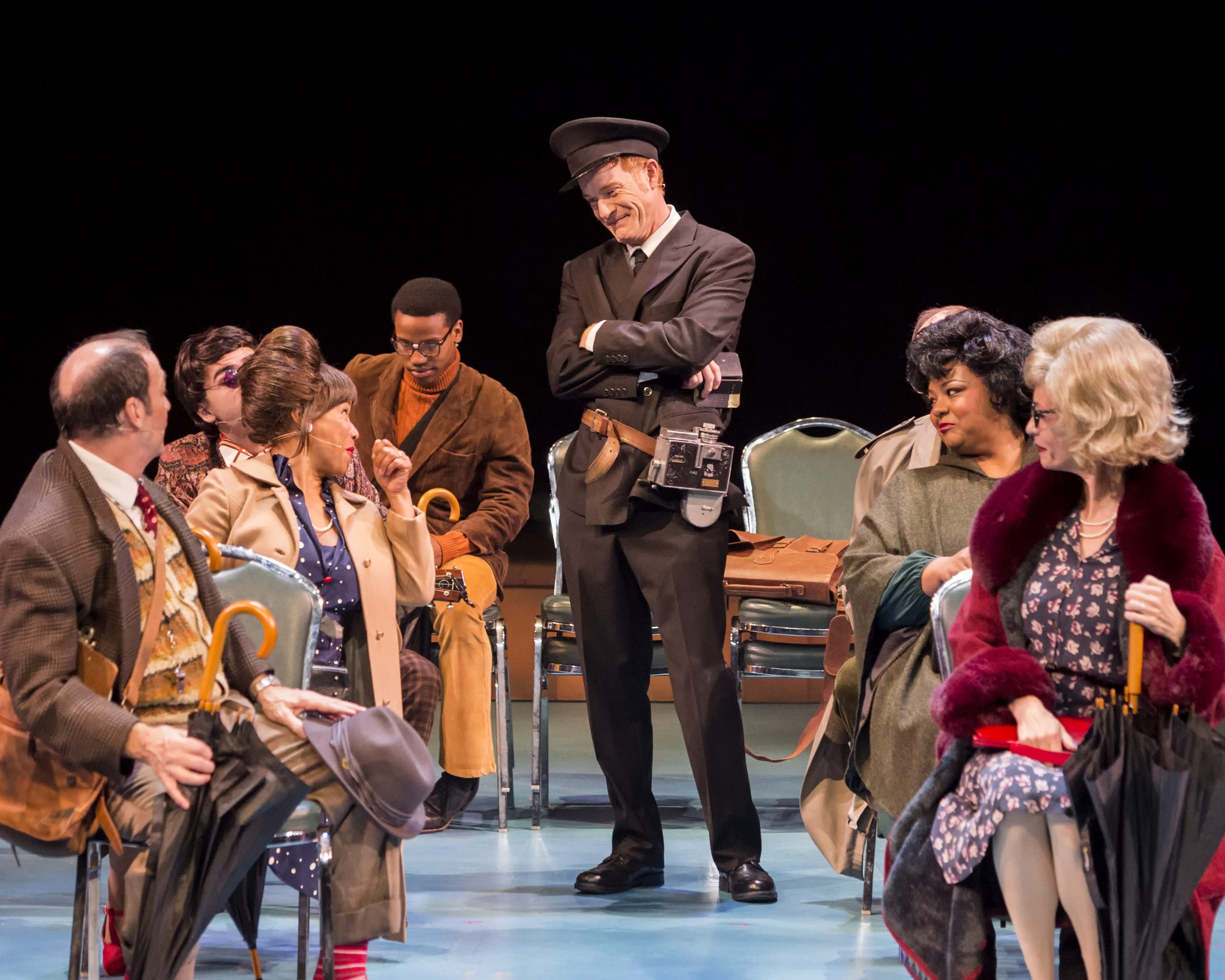
With the current administration taking over the Kennedy Center and threatening
programming at the Smithsonian Institution, art that challenges the heavy hand of
censorship has never felt more important.
“A Man of No Importance” will run May 9 through June 1st, at A Noise Within theatre, with 7:30p.m. showtimes and weekend 2p.m. matinee showtimes.
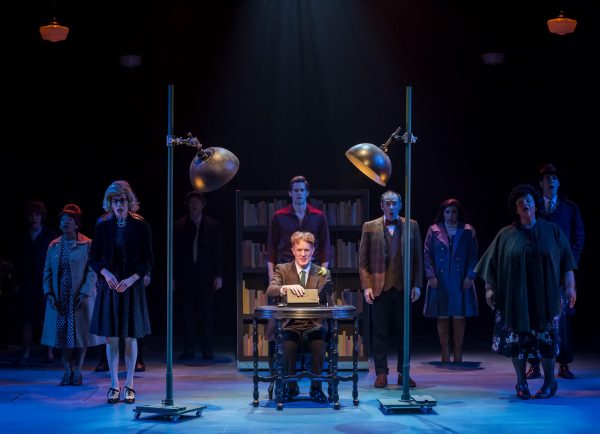
That aura of encroaching repression can’t help but penetrate A Noise Within Theatre’s
upcoming revival of the musical “A Man of No Importance,” which centers around a
closeted bus driver in 1960s Dublin who attempts to stage a community theatre
production of Oscar Wilde’s “Salome” over the objections of the local church.
Based on a 1994 film of the same name, and with a book by Broadway legend Terrance
McNally and music by Stephen Flaherty and Lynn Ahrens – the trio behind the smash
Ragtime – the 2002 musical tackles themes of courage in the face of repression with wit
and humor and a memorable score infused with Irish rhythms.
For Kasey Mahaffy, who plays the beleaguered bus driver and theatre director Alfie in A
Noise Within’s production, the show is deeply personal.
“I have never felt a more personal connection to a role than I have with Alfie. He’s a gay,
middle-aged Irishman who grew up Catholic and is obsessed with theatre,” he said. “I
mean this thing is in my DNA.”
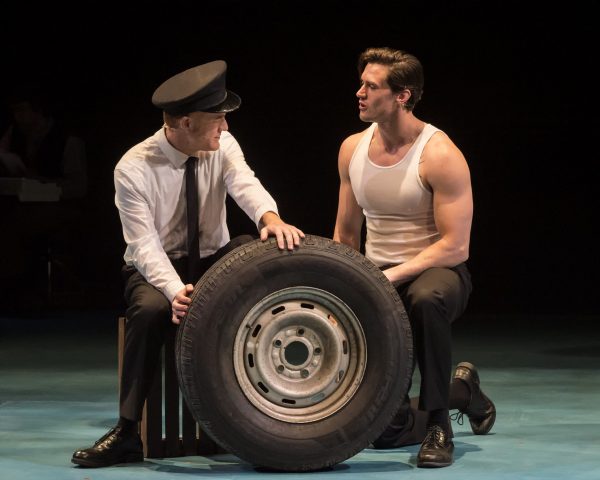
Mahaffy says the show fits into a long tradition of theatre challenging authority through
humor, satire, and empathy.
“Since its inception, theatre has always questioned authority. The most arresting art
often urges you to think critically and challenge oppression. That’s what Alfie is doing by
putting on these little plays in the church rec room – plays like Saint Joan and Salome
that hold up humanity while challenging the rigidity of Catholic society in 1963,” he said.
Indeed, the objections of the authorities within the play to the production of Salome
echo the sorts of objections that Republican lawmakers have levelled against drag,
queer performance and the mainstream arts generally.
Salome is Wilde’s 1893 tragic play about the seduction of John the Baptist by King
Herod’s stepdaughter Salome, and the subsequent murder of both John and Salome.
Wilde himself never saw the play produced – the only production in his lifetime occurred
in France in 1896, while he was in prison on his conviction for homosexuality. And the play was officially banned in Britain until 1931, due to a rule forbidding the depiction of
biblical characters on public stages.
Even once the ban was lifted, objections to the show’s frank sexuality, blasphemy, and
authorship by a queer man persisted in the public sphere.
Is that surprising, given that even in 2025, American lawmakers are attempting to ban
drag shows and remove books by queer authors from library shelves?
Perhaps what’s most important about A Man of No Importance in 2025 is that it provides
a pathway and hope for artists to fight back against this new age of repression.
“This show is all about building community with people who may not look like you or act
like you, but you come together anyway to create something bigger and more powerful
than any one of you alone,” said Mahaffy. “That is what art is. That is what art does.
And in these confusing times of divisiveness and anger, I can’t imagine a stronger
antidote.”
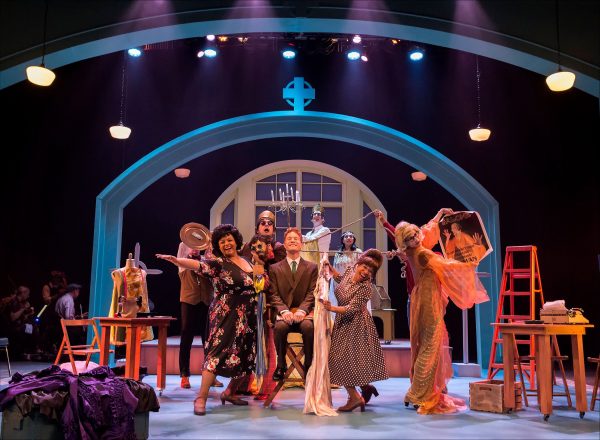
Queer theatre fans may remember Mahaffy from Geffen Theatre’s production of The
Inheritance, but he says playing this part at A Noise Within, where he’s a resident artist,
has been particularly rewarding.
“What I’m most excited about is sharing this story with our audience. I have been with A
Noise Within for over 10 years now, and this is the first time I’ve gotten to play a gay
man on my home stage. Incredibly meaningful to me,” said Mahaffy.
“And the show itself is my favorite kind of theatre: it’s absolutely hilarious but also
possesses deeply moving moments. And it’s all accompanied by a beautifully written
score filled with pulsing Irish music.”
Join Los Angeles Blade for Pride Night on May 15th at 7:30 pm: Use promo code PRIDE for 25% off and a voucher for a free drink ticket!
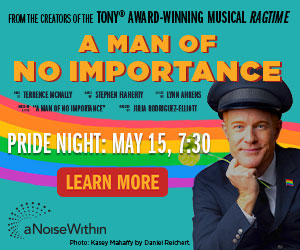
A Man of No Importance plays at A Noise Within Theatre, tickets and more information can be found at their website.
Arts & Entertainment
Local actor Mike Bowers returns to Live Spot at Musical Mondays
MuMo continues to celebrate its 16th anniversary by showcasing local talent

Local actor Mike Bowers is no stranger to Live Spot at Musical Mondays at The Abbey. He has been a part of the MuMo family for quite a while now, returning to the live performance spotlight several times a year. This Monday, Bowers will take the stage again for the themed night, “Aspects of Love.”
Bowers is a true man of the theatre. He has produced a number of musicals, cabarets, and plays in Los Angeles, after moving here over a decade ago. Bowers received his theatre degree from Florida State University and moved to Seattle to pursue a career in stage management. But the stage continued to call and pivoted back to his love of acting and directing.
He came to Los Angeles with no theatre contacts, working at a retail job. Fueled by his passion, he infiltrated the theatre community and hasn’t looked back since. He is the founder of Southern Bard, a theatre company that does readings of Shakespeare with Southern accents at The Roguelike Tavern in Burbank.
We caught up with Bowers as he prepares for his return to MuMo.
What first inspired you to fall in love with the stage?
I’ve enjoyed performing ever since I was little, but it was in high school that I really started singing, and it’s been my favorite thing in the world ever since.
You came to LA without any industry contacts, working retail. How did you become such an integral part of the LA theatre community?
I really owe it to my friends Madelyn Hayman and Becker Grumet, who cast me in my first stage musical in LA in 2016. I found my theatre community with them, and it only grew from there.
What do you bring to the theatre community that is unique?
I feel like I have a really innate sense of what works and what doesn’t, and I’m not overly precious about ideas.
You produce, act, and direct – what aspect do you enjoy doing the most?
Nothing brings me greater joy than singing, but I think if I had to pick a forever career, it would be directing.
What has been a favorite LA theatre project you’ve worked on so far?
I’m really proud of the work I did with Conundrum Theatre Company while I was there, and in 2022 I directed a production of Cabaret that I wish could have run for years.
What was your first exposure to Musical Mondays?
Gosh, it’s been so long! I think it was through my friend Mandie Hittleman, who invited me to one when it was still at Rage (RIP).
What do you love most about performing at the Live Spot at Musical Mondays?
It’s a great, supportive, low-pressure way to explore music and push myself vocally in a welcoming, safe space.
What can we expect from this upcoming Musical Monday Live Spot?
Great vocals!
What do you love most about Musical Monday audiences?
Just how supportive they are of the entire theatre community.
You are also the mastermind behind Southern Bard. Shakespeare with Southern accents? What inspired you to put the company together and was in the connection between the Bard and the South?
There was a trend on social media of people doing Shakespeare monologues in Southern accents and I was surprised at how well the language fit in that dialect. Taking it further, many researchers believe that the Southern accent is closer to what the British accent was in Elizabethan times. We’ve found that the accent can make the language more accessible to audiences, and it’s been fun to explore that with different plays and through a queer lens.
What is your message to MuMo fans?
Thank you for always being there!
Los Angeles theatre audiences will next see Bowers in a unique adaptation of the classic novel, The Time Machine, at this year’s Hollywood Fringe Festival in June.
Theater
‘The Broadway Cage Match’ ready to rumble at WeHo’s Musical Mondays
This mainstay of MUMO returns to The Abbey on Monday, celebrating the group’s 16th anniversary
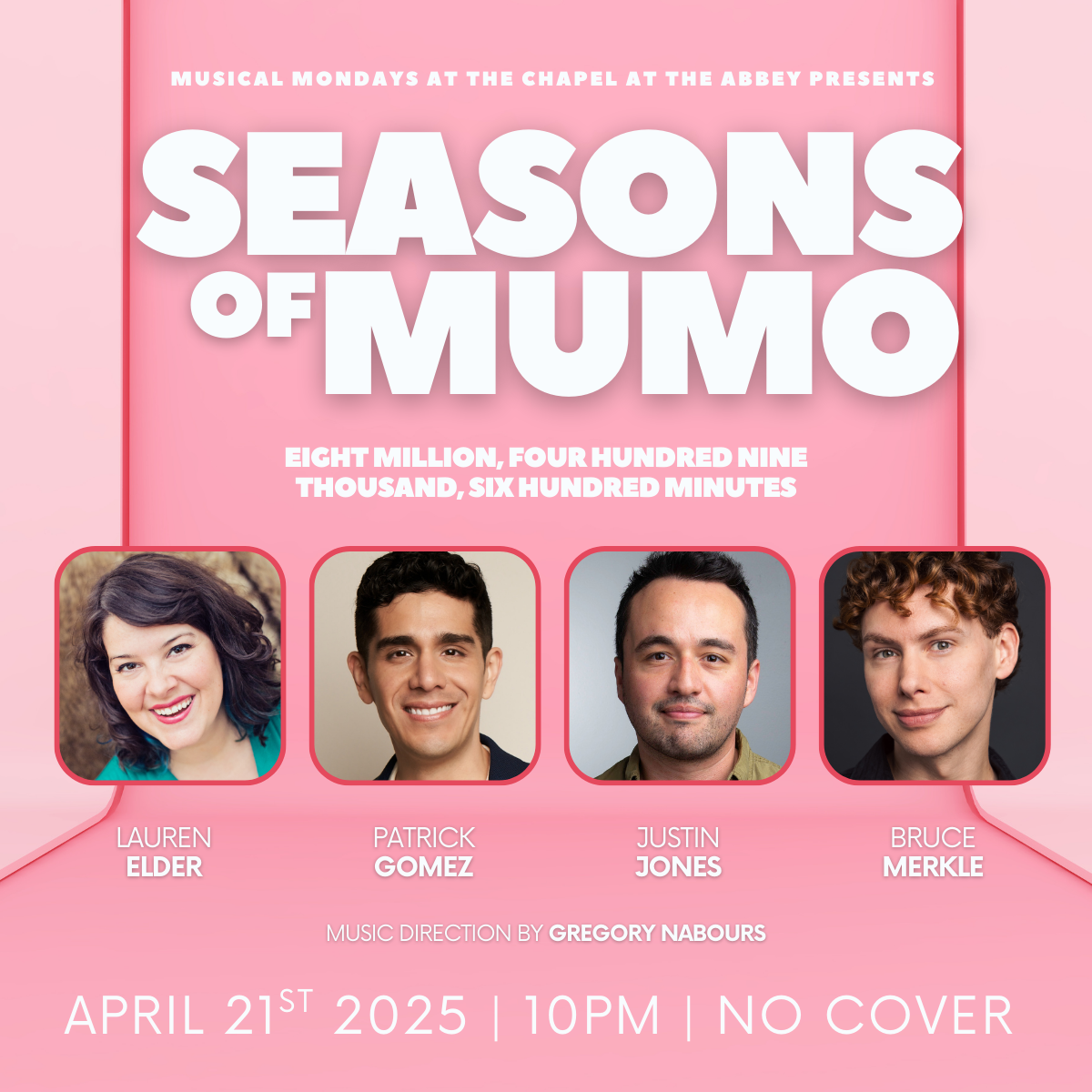
This coming Monday, Musical Mondays (MuMo) at The Abbey will be celebrating its big 16 year anniversary and will be honored by the City of West Hollywood, with infamous “The Broadway Cage Match” taking part of the celebration.
Cue up the music, “The Broadway Cage Match” is part improv, part sing-off and all fun. The entire affair is nothing short of spectacular because the singers are as impressive, as they are hilarious.
This popular MuMo institution was created by musical theatre guys Bruce Merkle and Justin Jones. These boys are as talented behind the scenes as they are on stage. This popular segment has become a much loved mainstay of this popular night.
Merkle originated the role of Olaf in “Frozen: Live,” at the Hyperion, directed by Liesl Tommy. He has also appeared on television in “Night Court,” “How I Met Your Mother,” “Rules of Engagement,” “The Goldbergs, RuPaul’s AJ & the Queen,” “Conan,” and had recurring appearances on “Victorious” and “The Tonight Show.”
He is a “Sunday Company” alumni at The Groundlings, where he periodically performs improv and sketch comedy. He is also a world renowned yogi, ranked 4th in the world and Michael Fassbender’s yoga double in David Fincher’s “The Killer.”

Bruce Merkle
Justin Jones made his Broadway debut in “Home for the Holidays” at the August Wilson Theatre and has appeared on Netflix’s “Sugar Rush,” “Tosh.0,” Lionsgate’s “The Newest Pledge,” and the Lifetime movie-musical “Christmas Harmony,” which he co-wrote with Nanea Miyata.
As a graduate of Circle in the Square Theatre School, he starred regionally with companies like Reprise Theatre Co., Casa Mañana and 3D Theatricals, co-created the “The Broadway Cage Match” for Rockwell Table and Stage and performed at venues including Birdland, Rockwell, Radio City Music Hall and more.

Justin Jones
We caught up with these two masterminds while they are gearing up for Monday’s big show.
What the heck is the Broadway Cage Match? Sounds dangerous!
JUSTIN: The Broadway Cage Match is a triple-threatening battle for showbiz glory. We started it in 2014 to showcase so-called ‘rival’ theater companies battling to see who was the best of the best. It was all about bringing your inner show queen, your inner diva, your inner poorly-adjusted showbiz kid to the stage.
We had people skrelt, belt and play fun improvisational showbiz games that commented on the absurdity of what it’s like to work in musical theater. It was all in good fun — a total celebration of the chaos and creativity of this art form. We got to work with amazing talent who brought their insanity and genius to the stage at Rockwell.
As Kate Pazakis, our producer, once put it: “It’s controlled chaos.” And that’s exactly what made it great.
BRUCE: We would have two musical that we’re playing at the same time and three people from each show would sing and compete in musical theatre inspired improv challenges. The audience voted on who went through and one show was victorious. The shows were so loud and fun. We always wrote special material and made sure each show was bespoke and tailored to the two musicals being featured.
What do you love about the local musical theatre scene?
BRUCE: I love how many theaters we have. So many people think this is just a film and TV town. And while that’s true, I bet there are three or so musicals playing at any given time. The talent is great too and the productions are on par with New York. The only thing we have that New York doesn’t have is leg room.
JUSTIN: I love how vibrant and generous the L.A. musical theater scene is. People are doing it for the love of the work.
I did my first show here in 2010 at Cabrillo Music Theatre with Sally Struthers and I got lucky — those performers became dear friends. Since then, I’ve worked with Reprise Theatre Co, 3D Theatricals and Musical Theatre Guild. I’ve gotten to collaborate with incredible, talented artists who show up with heart and soul.
There’s so much talent here — Broadway expats, TV and film actors, brilliant hobbyists. LA is an “ yes and” city, not an “or.” It’s a yes-and community. People support each other and build amazing work from nothing. From the big houses like the Ahmanson, Mark Taper, and the Geffen, to intimate 99-seat theaters—everyone’s in it to tell stories that matter.
And with so much diversity in this city, new voices are coming through. Musicals are being reworked and reimagined here. That’s what makes it exciting: we’re not just doing theater—we’re shaping what it can become.
What was your first exposure to Musical Mondays?
BRUCE: Ishka came to see me and Justin host The Broadway Cage Match and had such nice things to say. She asked us if we would be interested in hosting Musical Mondays and that’s the first time I heard of it. My mouth was agape the first time I walked in for rehearsal and the Fans of MuMo were performing before our set.
JUSTIN: When I moved to LA in 2010, it was my mission to get involved in the musical theater scene. I’d heard of Ryan O’Connor and that he hosted Musical Mondays at a place called Eleven in West Hollywood. Ryan and I both went to Circle in the Square Theatre School—just at different times.
So I went by myself to check it out and meet him. That’s where I first met Ryan and Scott Nevins. They were hosting, and the energy in the room was electric. The talent, the joy, the community—it was exactly the kind of intimate, musical theater-loving space I had missed after moving from New York. I knew immediately: I wanted to sing at Musical Mondays. That became a goal for me. I finally did eventually, on a night that the amazing Daisy Egan hosted!
Why is a night like Musical Mondays so important to the community right now?
JUSTIN: Community is essential—period. Everyone deserves a safe space to show up fully as themselves. And Musical Mondays is exactly that, especially for fans of musical theater. It’s an art form that blends so many identities, backgrounds, and stories. It’s a melting pot of human experience — and so are the people who love it.
Even if you don’t think you like musicals, it’s hard to come to MuMo and not be swept up by the joy of the Fans of MuMo or the power of the live performances. Every week, you can show up, relax, sip a drink, sit in silence, or scream-sing with friends. And you’re surrounded by queer people and allies doing the same.
In a time where so many people feel disconnected or overwhelmed, Musical Mondays is a place to let your hair down, be silly, celebrate love and feel something real. That’s what makes it matter.
What is a favorite Musical Mondays memory?
BRUCE: Justin somehow found some leprechauns to back me up when I sang “It’s A Great Day For The Irish” on St. Patricks Day and also magically produced bells for the entire audience when I sang ‘I Can Hear the Bells’ from “Hairspray.”
One time my mom was in town and she came to see the show. It was the Monday before Thanksgiving and Ishka gave her a piece of pumpkin pie. It was so sweet and Ishka asks about my mom every time I see her.
How did you two meet?
BRUCE: We had the same agent and we’re both auditioning for musicals around town. I remember seeing Justin in the waiting rooms a lot. We finally worked together in a cabaret show and started talking. Justin was always eager to put something together and pitched me the idea of working together on an extravagant cabaret-style show. We eventually wrote “The Broadway Cage Match” for “Rockwell Table & Stage” and now he won’t stop annoying me.
What do you love most about working with the other?
BRUCE: Justin’s innovative mind never turns off. He is always trying to make things sharper and better. It’s really fun to problem solve with him because we both have completely different skills and they go well together like The Yin and Yang [symbol.] He is also game for any idea I pitch and will help us find the best way to execute it.
What was that one musical that inspired you to become a musical theatre devotee?
BRUCE: Watching Mary Martin in “Peter Pan.” I didn’t know what magic was happening, but I knew I had to do whatever Mary was doing.
JUSTIN: For my family, the musical was “Into the Woods,” and our composer was Stephen Sondheim.
I fell in love with that show early — and over time, I’ve had the experiences of many of its characters. These characters stay with you. My family used to watch the VHS recording on road trips and it became something deeply personal we all shared.
Now that I am older I have gained a profound understanding of “Company,” “Sunday in the Park with George” — basically, my journey has been falling deeper in love with Sondheim over time. His work is personal, complicated, honest. It changes you.
Gender swapping is a new trend in musicals — what starring role would you cast yourself in if swapping?
BRUCE: Oh gosh. I usually sing female songs for Musical Mondays so the list is long. I’d love to play Fanny Brice in “Funny Girl.” I think I’ve must’ve sang all of [Brice’s] songs by now at Musical Mondays.
JUSTIN: We’re in such a special moment where storytelling is expanding — diversity in casting is opening up opportunities for people to tell their versions of stories, not just repeat what came before.
But for me? I’d play the Baker’s Wife. That character taught me so much. I sing her material in at MuMo sometimes — specially “Moment in the Woods”. There’s just something about her journey that feels really meaningful to me.
What are the three quintessential musicals everyone should love?
BRUCE: Of course, this answer will change depending on when you ask me again. I think “Into the Woods ” is brilliant, like millions of other people. I love zooming in on the gray area of life, which that show does beautifully. The Color Purple” destroys me every time I see it, so I hope people can get a tiny bit of what I get out of it. Finally, “Chicago.” It’s so fun and always makes me happy I haven’t committed murder yet.
JUSTIN: It’s hard to say everyone should love any show—musicals are so personal. But I’ll tell you a few that have changed me:
“Sunday in the Park with George” – as an adult, this one hits deep. “Finishing the Hat” is devastating when you’re trying to balance making art, finding love, and being understood. It’s for anyone building something new and feeling invisible while doing it.
“The 25th Annual Putnam County Spelling Bee” – William Finn just passed away, and this show is a tribute to his quirky, beautiful storytelling. I worked on it while training at Circle in the Square and got to see the original cast many times. It’s hilarious, touching, and full of heart. And honestly? I’d love to play Marcy Park.
“West Side Story” – A Bernstein score, Sondheim lyrics and lessons that still matter. It’s lush. It’s classic. It’s powerful.
What is your message to MuMo fans?
BRUCE: Keep coming! Bring your friends. Bring your enemies. Get your dose of theatre and go support the singers around town if they’re performing in something.
JUSTIN: You belong here.
Every Monday, this is your safe space to be fully yourself. Whether you love musicals or not, just being around people who celebrate art with love and joy — that’s magic.
The fans of MuMo are like our own vaudevillian Muppet troupe, bringing their whole selves to the party. The live performers? Broadway pros, regional stars, people with real chops — they bring it all to this stage just for the joy of sharing it.
It’s powerful to be in a queer space where you can laugh, sing, cry, and just be. That’s what Musical Mondays is. Broadway in your backyard.
Thank you for coming every week. You make this moment matter.
Arts & Entertainment
South Coast Repertory Theatre hosting world premiere production
Pride Night will take place on Saturday, April 19
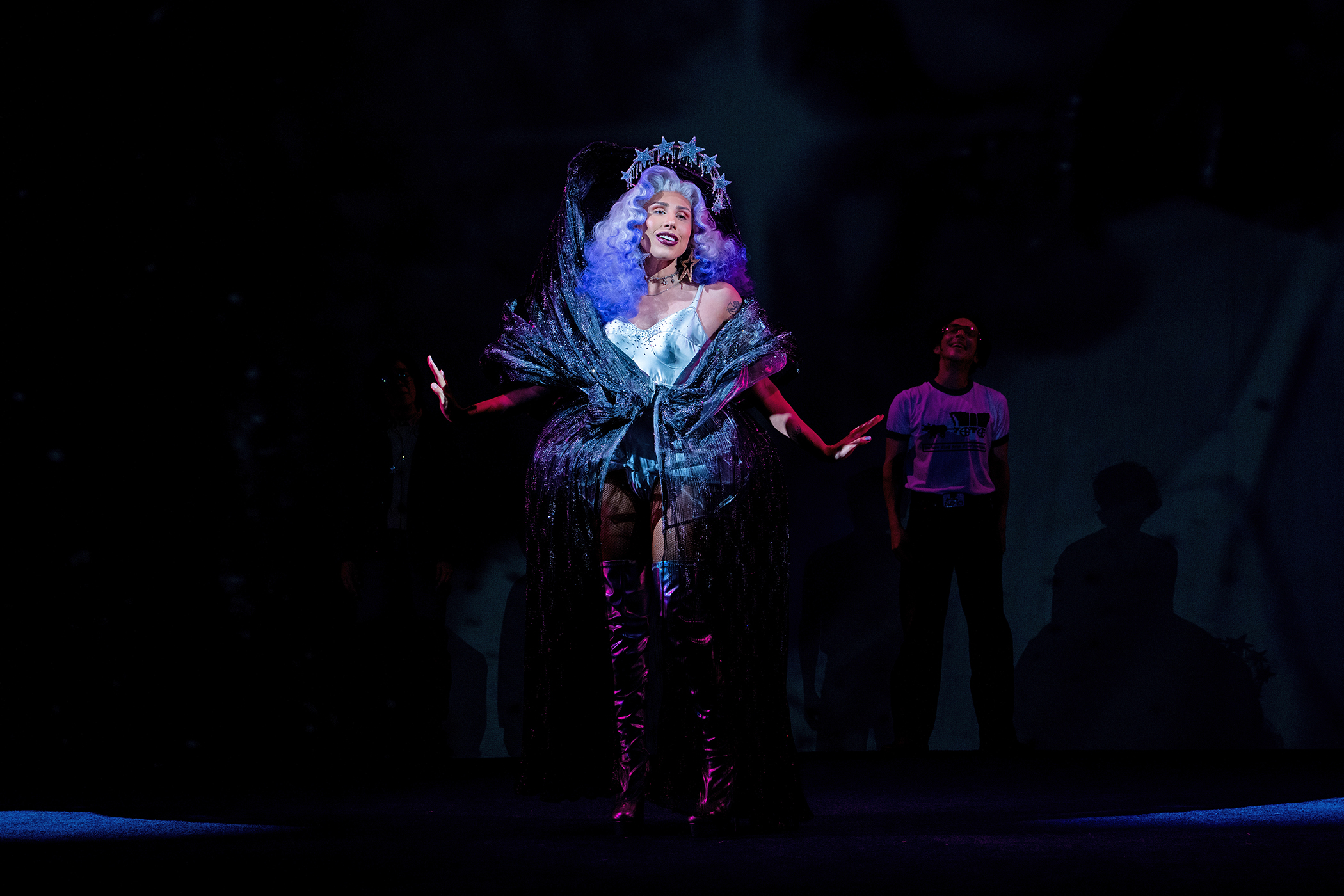
Costa Mesa’s South Coast Repertory Theatre hosted their opening night last weekend, bringing in a packed house.
There was an excited buzz in the air as the audience was seated to dance music from the disco to the present era, shiny stars and disco balls hanging from the ceiling, and club lights flooding the scene.
The audience was completely mixed, older and younger, fancy and casual, queer and straight, all in anticipation of this world premiere, from one of the most in-demand playwrights in the country, Keiko Green. Not more than three minutes after the lights dimmed, the audience realized this would be a show like no other.
In an explosion of reality and surrealism, the play is hard to label, much like the show’s non-binary main character and emcee for the evening, M.
The show centers around M and their journey of self-discovery, navigating through the modern world of tech and pollution, while dealing with the terminal illness of her father, M’s well-meaning mother trying to keep the family together and keeping her own grief at bay. It is a whirlwind of bigger-than-life characters and creatures, intimate moments and extreme pathos.
Using comedy as a main element, the play reels you into its real-but-not-real world, and the audience is easily transfixed by the story, through its extremely emotional and dizzying end.
Needless to say, you could hear a pin drop in the show’s final scenes, though sniffles could be heard and audience members wiping a tear or two away could be seen.
It is a comedy in disguise.
The show has a queer sensibility, especially manifested by the character of M, but it is not just a queer story. This play represents all of us and it is very fitting that the world is used as a metaphor for the proceedings.
Playwright Green masterfully uses laughter and grief as unifying themes. Laughter and grief are universal experiences that unify us all, regardless of sex, sexual orientation, class, race, or religion. The diverse audience at opening night was one entity by the end of the show.
The show comes at a time when we are thinking of the bigger picture, our place in the community, our place in the nation and our place in the world. Socially and politically, the world is a mess. And so is life. How you navigate it and find your place is how you survive. One moment at a time, one laugh at a time, one tear at a time.
South Coast Repertory will celebrate the queer community this coming Saturday on April 19th with a Pride Night performance.
Tickets include a pre-show event on the terrace, two complimentary glasses of wine, dessert and a live DJ. Meet a family (and a few friends) navigating love, loss, and climate change—with humor, heart, a little glitter and a touch of drag. A celebration of the beauty of the human spirit, even in the most unexpected moments.
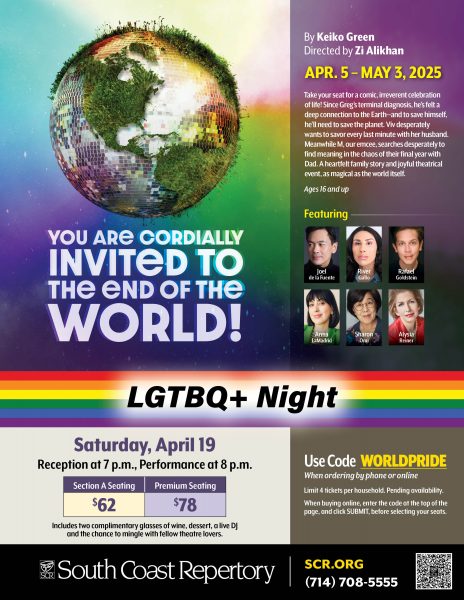
Get your tickets here, using discount code: WORLDPRIDE.
To win tickets through our ticket giveaway, enter here.
Local
New chapter: P3 Theatre Company moves to Los Angeles
P3 Theatre Company, a long-standing staple in Long Beach’s theatre scene, has officially relocated to Los Angeles.

P3 Theatre Company, a long-standing staple in Long Beach’s theatre scene, has officially relocated to Los Angeles. While the company remains close to its Long Beach roots, this move signals a fresh chapter and opportunity to connect to a broader audience.
Jon Peterson, Executive Director and Founder of P3 Theatre Company, discusses the transition.
“After the pandemic lifted, the venue we were renting in Long Beach was no longer available to us,” explained Peterson. “After some time, we decided to look in the Greater Los Angeles area. There are so many great venues available, and there’s definitely a huge demand for the arts.”
P3 Theatre’s first major production in Los Angeles will be “Day After Day” (The Life and Music of Doris Day), a sentimental and nostalgic celebration of the legendary singer and actress. The choice to revive this show was intentional — it was P3’s last production before the Covid-19 shutdown.
“‘Day After Day ‘ was a very successful production,” said Peterson, noting that it earned Deborah Robin the Best Performer in a Musical title at the Orange County Theatre Guild Awards. “It’s such an endearing show with tons of recognizable music and the dynamic story of Doris Day.”
While dazzling performances are integral to P3’s mission, the company is equally committed to community outreach. Peterson emphasized that the move to the West Hollywood and Hollywood areas, offer opportunities to collaborate with other nonprofits and expand access to the arts for marginalized groups.
“There is a huge demand for the arts in this region,” said Peterson. “We look forward to bringing shows that audiences are excited to see, as well as introducing new works that will enhance their theatrical experience.”
One of P3’s signature initiatives is P3 Educates+, a program designed to provide performing arts workshops to underserved communities. Catering to all ages – which Peterson describes as 0-100+ – the workshops include improvisation, acting, and singing.
“It provides more than just an education of theatre,” Peterson explained. “[It provides] a level of entertainment that marginalized communities may not have an opportunity to experience otherwise.”
Supporting LGBTQ+ stories and artists is also a core priority for P3 Theatre Company. Peterson highlighted the company’s commitment to producing both new LGBTQ+ works and celebrated classics.
“Our stories need to be told and heard,” Peterson emphasized. “What better way to do so than through the arts?”
Among P3’s proudest achievements are the world premieres of two acclaimed works by playwright Jiggs Burgess. The Red Suitcase won the prestigious Del Shores Playwright Competition, while Wounded earned multiple awards at the Hollywood Fringe Festival in 2023. The latter’s success secured an off-Broadway run at Soho Playhouse in New York City, with performances continuing in 2024 and 2025.
P3 Theatre Company has ambitious long-term goals for its future in Los Angeles. Peterson hopes to build a strong audience and donor base while eventually securing a permanent performance space.
“P3 Theatre Company’s long term goal is to grow a solid audience and donor base in Los Angeles – and to find ‘the perfect theatre’ to hang our hat in.” Peterson said. “It is our plan to call Los Angeles our home and to continue to produce professional theatre in a community where theatre is thriving.”
For those eager to experience P3’s return to the stage, tickets for Day After Day (The Life and Music of Doris Day) are now available. As Peterson says with confidence, “We know the audiences will love it!”
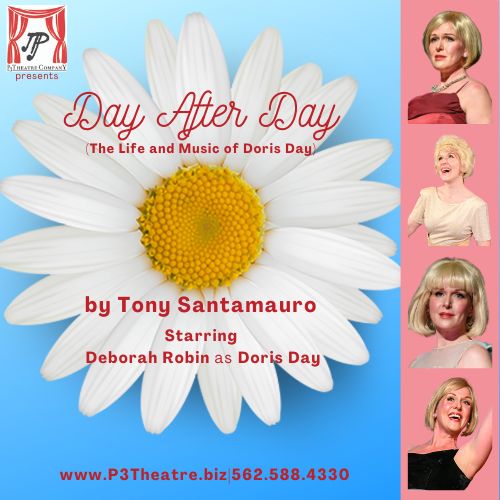
For more information about P3, head to www.p3theatre.biz
Arts & Entertainment
GMCLA’s Rhinestone Cowboys to dazzle the stage in upcoming concert
Happening at the Saban Theatre in Beverly Hills on March 22 and March 23
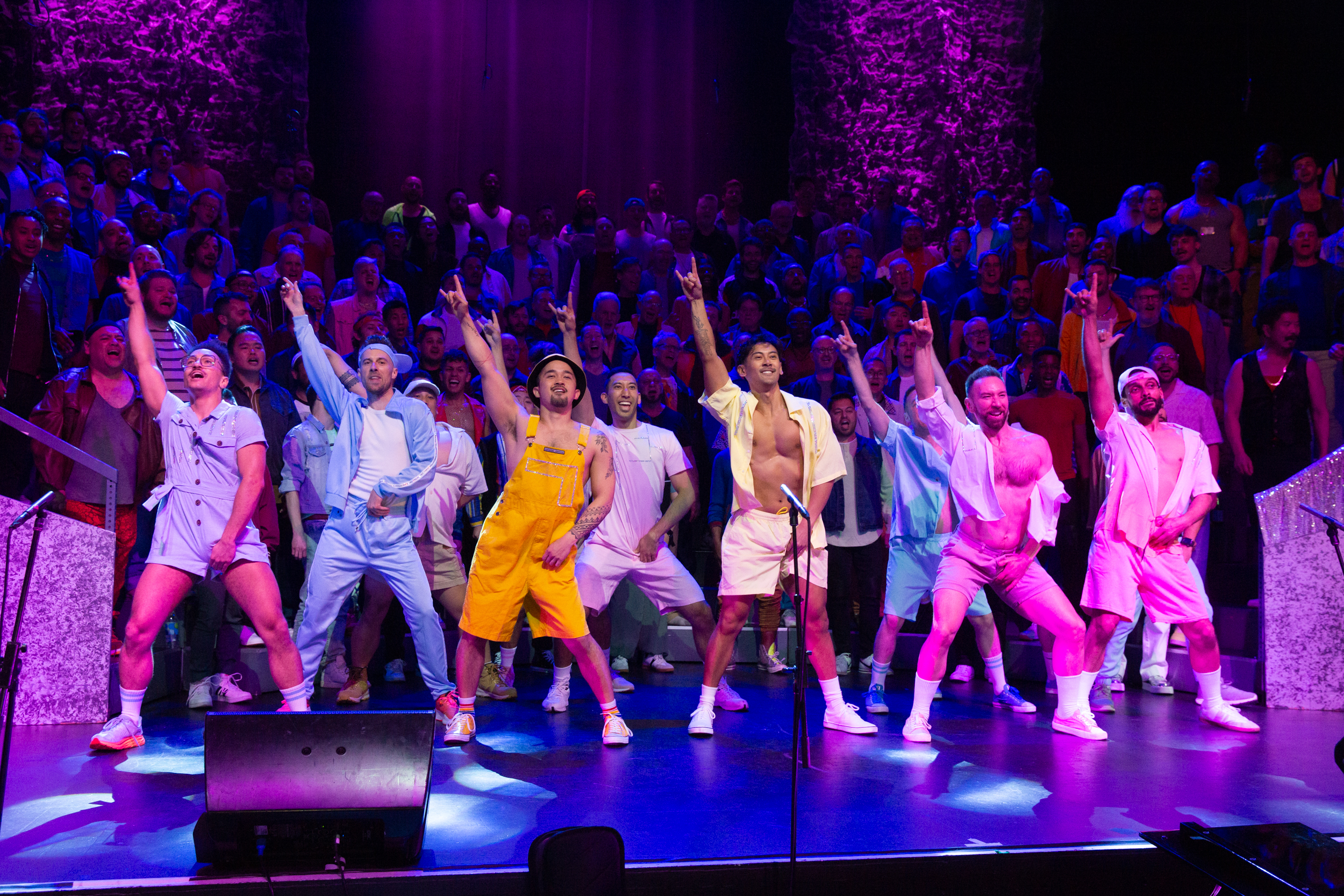
The Gay Men’s Chorus of Los Angeles is bringing the glitz and the glamour to the stage
along with 200 Chorus members dedicated toward singing and dancing to the most
revolutionary hits in country music. Not that you need one, but this is the perfect excuse
to corral the gays and gals and throw on your rhinestone-studded fits for a night of gay
magic. We know you still have the perfect articles of clothing from Beyonce’s
Renaissance Tour to make a new fit and make an appearance at the Saban.
The Rhinestone Cowboys concert will feature music by Dolly, Reba McEntire, Shania
Twain, Johnny Cash, Chris Stapleton, Taylor Swift and more.
GMCLA will also feature music by the genre’s most beloved allies and queer artists
such as Beyoncé, Brandi Carlile, Shaboozey, Lil Nas X, and Chappell Roan.
Los Angeles Blade had a chance to sit with Lou Spisto, who is the Executive Director &
Producer of GMCLA and catch up on the latest.
“Whether we do Broadway, classical, pop or disco, [the production] is going to have a
sound based on who we are and how we do what we do,” said Spisto. “It’s also going to
have our sensibility and how we sass it up and spin with just a little bit of fairy dust.”
The Rhinestone Cowboys show will feature over 200 of their over 240 members, on
stage throughout various songs – everything from the Cash classics, to the new
Beyonce hits that earned her the Grammy for Best Country Album of the Year.
Spisto was brought on as Executive Director and Producer in early 2019 after the
organization was experiencing financial trouble and began to engage the community and the organization in a fiscal turnaround by going directly to the public, even from the
stage, asking for donations from community, subscribers and the corporate sector. The
turnaround was successfully completed by the end of 2019 and months later COVID-19
forced the shutdown that all the world experienced.
Shortly after GMCLA ‘righted the ship,’ Spisto said, “COVID-19 shut us down and
thankfully, by then, we had enough financial stability to withstand what we may not have
been able to do at that time.”
“Since 2019 and then after the pandemic again, we’ve grown much stronger ,” said
Spisto. “And then COVID-19 happened before the fourth production.” Spisto credits the LA Arts Recovery Fund for giving them the critical support to keep the
organization going through the shutdown and be able to bring the Chorus back.
Four years after the pandemic shut down, Broadway and non-profit theatres are still
struggling to see pre-pandemic attendance levels. Which means, GMCLA is beating the
odds and keeping productions running during times where audience shifts, soaring
prices on everyday items and other issues, limit attendance.
According to a broader arts industry analysis, ‘the last full season before the COVID-19
industry shutdown – the 2018 to 2019 season – saw historic highs in both earnings and
artist work weeks.’ By contrast and because of COVID-19, the ‘2020 to 2021 earnings
and total work weeks dropped to a historic low.’ The latest in the analysis of 2023 to
2024 shows the nation’s theatre productions just beginning to recover from the
pandemic drop in live performances and audience attendance.
GMCLA plans upcoming productions that take over 12 weeks each to rehearse and
produce while it also performs many free community events and school programs . “We
are financially stronger, and that means we have the ability to give back to the
community as well,” said Spisto.
GMCLA recently hosted an event at The Abbey Weho that brought together the community and raised over $7,000 dollars for those who were impacted by the fires that devastated neighborhoods in Los Angeles back in January.
This is just one of the many ways that the Chorus is giving back. GMCLA continues its
work on the current season’s remaining two sets of concerts, finalizing plans for the
2025 GALA in June, creating and developing an exciting season for next year and
keeping its eyes on the 50th season in 2028 and 2029.
Arts & Entertainment
‘Old Friends’ is a must-see for Sondheim fans
Though some of the material is considered classic Broadway, it all comes off as glossy and relevant
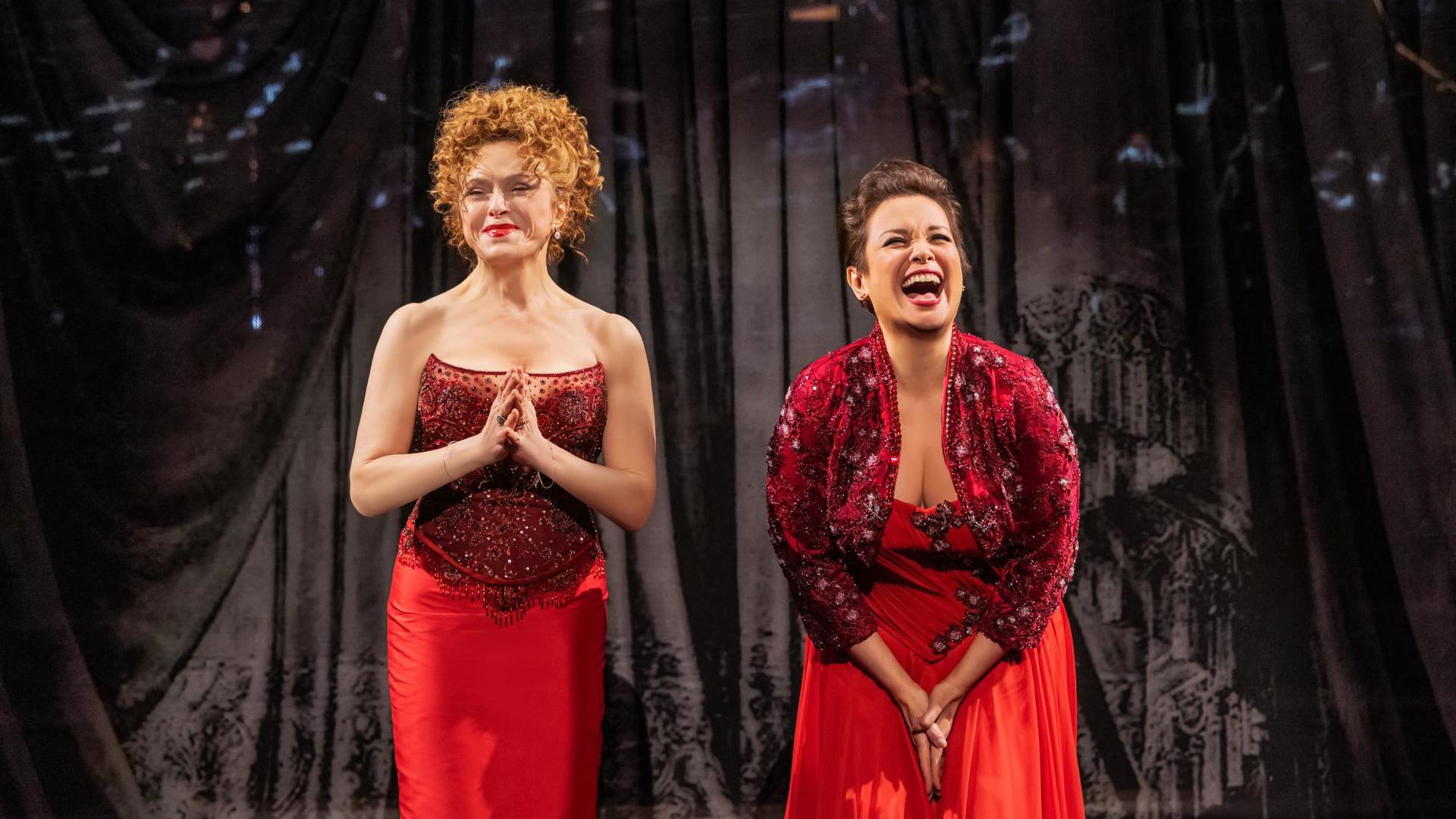
When it was announced that the Sondheim tribute Old Friends, was headed to the Ahmanson from its West End run–we the queer musical theatre nerds–went into a tizzy.
When we found out that Broadway royalty Bernadette Peters and Lea Salonga were continuing their run with the show, we just about passed out.
We were there on opening night at the Ahmanson with a star-filled audience to witness a truly five-star production where everything just fits right. The long-lasting roaring applause that met the entrance of the show’s two stars did not end and the evening took the audience on a roller coaster of emotions. This is old-school theatre excellence made fresh for today’s audience. Sondheim’s material is alive and well.
There have been musical revues of this Broadway icon before. This production fares very well by focusing on Sondheim’s collaborations with other Broadway icon Cameron Mackintosh. All of your favorites are there – Company, Into the Woods, Follies, West Side Story, Sweeney Todd, and more, with many surprises from his other shows.
Some of the musicals are presented as full sequences–and Sweeney Todd and West Side Story segments were full mini-musicals, with sets and all. Other numbers were presented with a twist, adding a fresh take that allowed the actors to shine. Though some of the material is considered classic Broadway, it all comes off as glossy and relevant.
The set, costumes, and lighting were top-notch. Quick transitions were masterfully orchestrated and the whole affair seemed made for the Ahmanson. Some traveling shows have that temporary or makeshift energy, not here. While musical theatre is often limited by budget when it comes to pit musicians, this orchestra, led by musical director Annbritt duChateau, is absolutely rich with texture and lush with sound. It gave the material the quality it deserved.
What can we say about the performers? Yes, Peters and Salonga are huge names and big personalities to lead the evening. There is not one weak player here. The cast is full of Tony Award winners and nominees–and it is obvious.
The beauty of Old Friends, is that the show gives everyone the opportunity to shine–and they take it. The chemistry of the cast is palpable and every player hands over the spotlight graciously. No one runs away with the show–they all do.
Peters, Sondheim’s main muse, continues her reign as one of Broadway’s greats. When she hits the stage, you can feel the energy and you know you are witnessing theatre royalty. Over the years her voice may have lost a little of that shine, but her emotion and pathos add a layer to the material that could never be replicated. Seeing her reprise her role as Dot in Sunday in the Park with George, is truly special.
Salonga’s voice seems to know no limits.
She skillfully masters Mrs. Lovett and brings down the curtain with her version of “Everything’s Coming Up Roses.” She may not have the emotional range as Peters, but she is the perfect lead for this show. Every other actor could have their own review, they are just that good. Special shout out to Tony Winner Beth Leavel who tore the stage apart with her take on “Ladies Who Lunch,” not an easy feat when most of us have echoes of Elaine Stritch and Patti LuPone in our minds.
She makes the material her own and the audience couldn’t get enough. Two-time Tony nominee Gavin Lee, brings the comedy and the drama to his performance, enchanting the audience with his “Could I Leave You?”
Broadway heartthrob Jacob Dickey leads a powerful and new take on “Being Alive” and also somehow makes the role of the Wolf from Into the Woods his own.
Truth be told, this winning production is best suited for Sondheim fans. I would be hesitant to take a non-theatre lover or someone who just likes movie musicals as my plus one. You don’t have to be a Sondheim aficionado, but this is a very deep dive into the material and is best appreciated by those in the know. Thank goodness there are many of us out there. What was plain to see by the audience in attendance, is how far Sondheim’s music has reached. Young, old, queer, fancy, casual, celebrity, everyone became one audience to enjoy this magical evening.
With everything going on in today’s world, it is so comforting to come home in a sense, to music that has made such an impression in our lives. There is safety in enjoying the known, like watching a TV show that you’ve binged for the umpteenth time and, in this show fraught with love and sincerity, is able to make it new again.
Old Friends plays at the Ahmanson for a limited run until March 9th before heading to Broadway. Tickets are available on the Center Theatre Group website.
Arts & Entertainment
Rogue Machine Theatre’s ‘Bacon’ probes cycles of intimacy and abuse between gay Gen Z’ers
Sophie Swithinbank’s award-winning drama about London schoolboys makes it LA debut
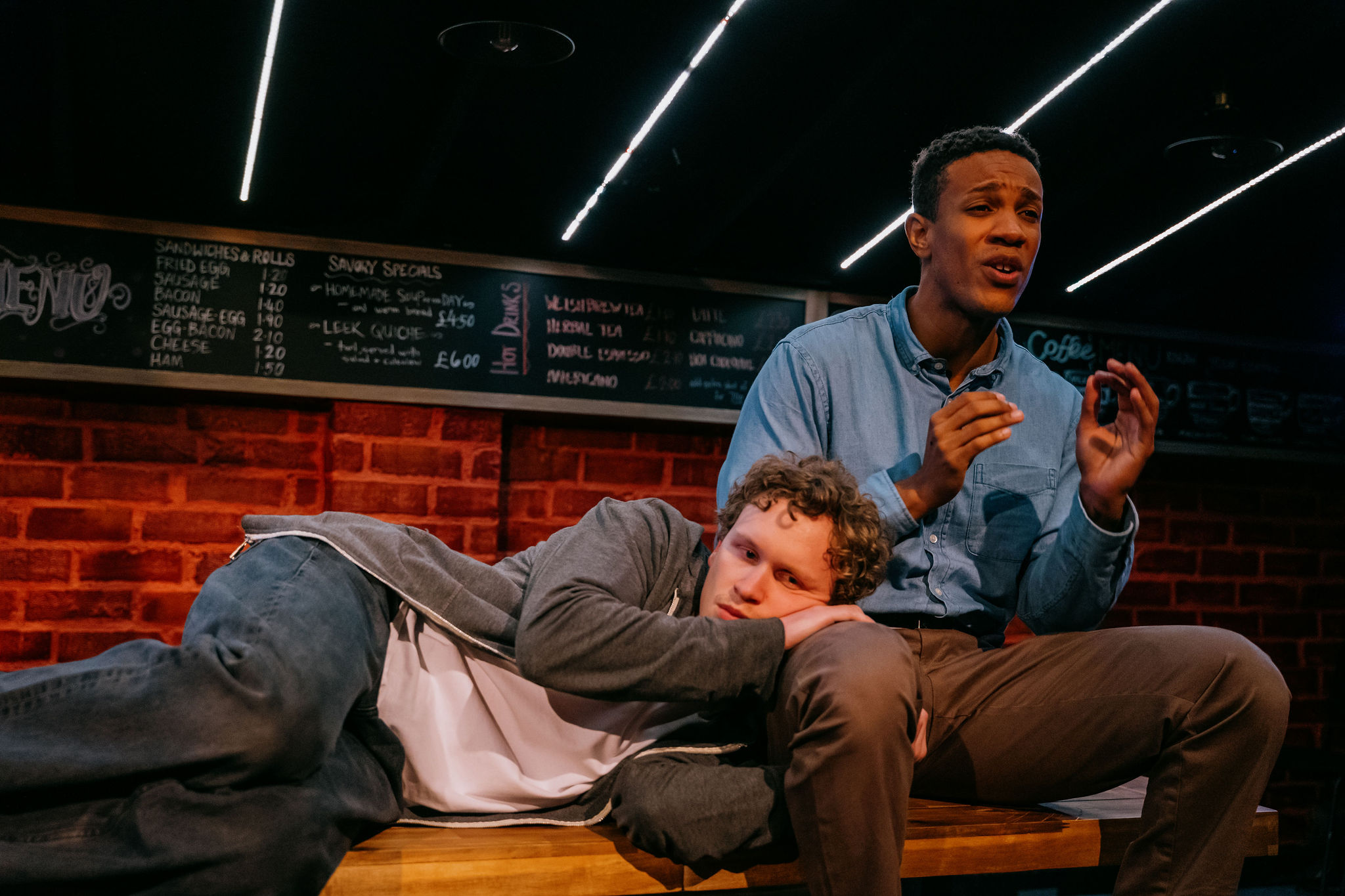
Legacies of shame and abuse play out in surprising ways in Rogue Machine Theatre’s
production of British playwright Sophie Swithinbank’s award-winning play Bacon, which follows two boys in a London high school as they form a fraught and manipulative relationship.
Rogue Machine isn’t saying much else about the play – even getting that much of log line required an email to the company’s marketing director and a referral to the play’s publisher. The company is hoping that audiences will come into the show blind and be completely surprised by what they see. So far, director Michael Matthews says the audiences who are turning up are appreciating the play’s twists and turns.
“Right before it goes to the blackout at the end of the show, there’s always a gasp, which is
always like, you got it, you’re with it,” Matthews said. “If you come see my show, I want you to
come in one way, but I want you to exit another. Even if this is a smile on your face, or like a tear or something, but to have some sort of movement. The audience is, so far from what I’ve witnessed, they’ve been along on the journey.”
Swithinbank’s own playwright’s note for the show says it’s ‘about what happens when teenagers learn to bully and humiliate each other before they learn to love,’ and that it was inspired by an act of bullying she witnessed and a toxic relationship she experienced growing up.
Matthews says when Rogue Machine approached him about directing the the play, the script gripped him from the first page, which isn’t surprising given the splash Bacon made when it debuted across the pond in 2022, earning three Off-West End Awards, and previously earning Soho Theatre’s Tony Craze Award for Playwrighting.
“It’s not just that I see myself in a play, but that my heart is pulled a certain way. That’s just me
knowing that this is something that I have to do,” Matthews said of the script.
And Swithinbank has been involved with this production as well, workshopping the script to fit it to Rogue Machine’s young cast, which features Brazilian-American actor Wesley Guimarães and Chicago native Jack Lancaster – you may have seen him on “The Bear.”
“One of actors is Brazilian, and so [Swithinbank] changed a lot of her words to add in that his
mother was Brazilian inside the play. She went so far as to put in Portuguese into the show,
which just adds on a richness that just works so beautifully. And then the other actor, his family is from Dublin, and so we changed a lot of the characterizations to have that Irish authenticity,” Matthews said.
That authenticity is essential, especially as the show is playing in Rogue Machine’s
intimate Henry Murray Stage, which seats just 37 people.
“It’s supposed to feel very intimate, like you’re walking into like some place you’re not supposed to be and you’re observing something you’re not supposed to be observing. And so you have that thing inside of you when you’re watching, like I should help. This is a foot away from me. I should do something, but you can’t, right? So it gives intimacy a whole brand new name,” Matthews said.
Bacon plays at The Matrix, 7657 Melrose Avenue, Los Angeles, CA 90046, through March 30.
Fri and Mon at 8pm, Sat-Sun at 5pm. Tickets available at The Rogue Machine Theatre site.
-

 Viewpoint5 days ago
Viewpoint5 days agoI’m a queer Iranian Jew. Why I stand with Israel during this conflict
-

 Congress4 days ago
Congress4 days agoWhite House finds Calif. violated Title IX by allowing trans athletes in school sports
-

 Breaking News10 hours ago
Breaking News10 hours agoMajor victory for LGBTQ funding in LA County
-

 a&e features3 days ago
a&e features3 days agoLatina Turner comes to Bring It To Brunch
-

 Books2 days ago
Books2 days agoTwo new books on dining out LGBTQ-style
-

 Television4 days ago
Television4 days ago‘White Lotus,’ ‘Severance,’ ‘Andor’ lead Dorian TV Awards noms
-

 Features6 hours ago
Features6 hours agoKoaty & Sumner: Finding love in the adult industry
-

 El Salvador15 hours ago
El Salvador15 hours agoLa marcha LGBTQ+ desafía el silencio en El Salvador

